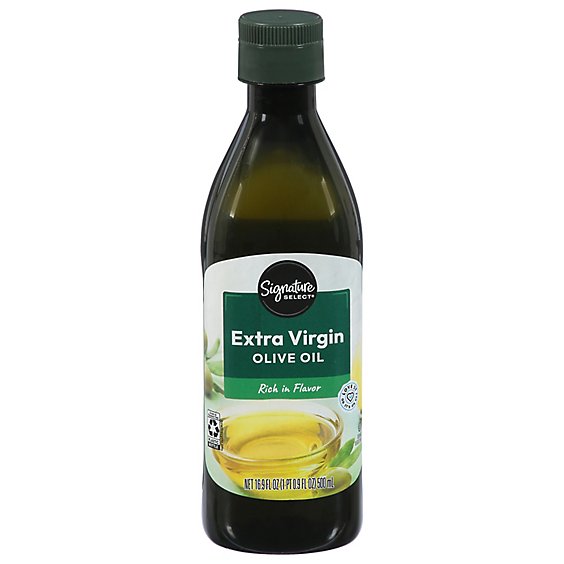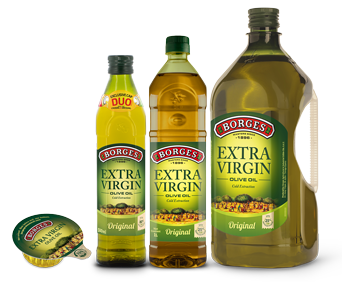Discovering the Different Sorts Of Olive Oil and Their Uses, Consisting Of Bonus Virgin Olive Oil
The exploration of olive oil includes a diverse array of types, each offering distinctive flavors and culinary applications. Bonus virgin olive oil, renowned for its exceptional top quality and health benefits, serves as a staple in several kitchens, yet it is just one facet of this diverse active ingredient.
What Is Olive Oil?
Acquired from the fruit of the olive tree, olive oil is a staple in Mediterranean cuisine and an essential active ingredient in various culinary applications. This flexible oil is generated by pushing whole olives, resulting in a liquid that varies in flavor, scent, and shade depending on the sort of olives used, the region of growing, and the extraction process. Olive oil is mainly made up of monounsaturated fats, especially oleic acid, which is recognized for its possible wellness benefits, consisting of anti-inflammatory homes and cardio assistance.
In enhancement to its culinary uses, olive oil has a lengthy history of application in traditional medicine and skincare, owing to its abundant antioxidant web content (extra virgin olive oil benefits). The oil is usually utilized in dressings, sauces, and for cooking techniques such as sautéing and roasting. Its unique flavor profile can enhance the preference of different meals, making it a necessary component for both home cooks and professional chefs
In addition, olive oil is celebrated for its function in the Mediterranean diet, which is related to countless wellness benefits. As awareness of these benefits grows, olive oil continues to obtain appeal worldwide as a basic component of a healthy way of life.
Sorts Of Olive Oil
Recognizing the different kinds of olive oil is important for both health-conscious consumers and cooking lovers. Olive oil is classified mostly based on its removal method and top quality, which considerably influences its health, scent, and taste advantages.

Light olive oil, in spite of its name, refers to a lighter taste and not lower calories. It is perfect for those seeking an extra subtle taste in sauces and dressings. In addition, there are flavored olive oils instilled with natural herbs, spices, or citrus, which can boost recipes without the need for additional flavoring.
Each type of olive oil serves certain culinary objectives, and recognizing these differences permits consumers to make informed selections that align with their food preparation styles and wellness goals.
Extra Virgin Olive Oil
Bonus virgin olive oil (EVOO) is widely considered the highest possible quality olive oil readily available, well known for its abundant taste and numerous wellness benefits. To be categorized as extra virgin, the oil needs to be produced from fresh olives utilizing mechanical procedures, without using solvents or excessive warm. This thorough method maintains the oil's natural flavors, anti-oxidants, and healthy fats, causing a product with a low level of acidity degree of less than 0.8%.
EVOO is plentiful in monounsaturated fats, particularly oleic acid, which is linked to decreased inflammation and enhanced heart wellness. It also includes polyphenols, effective antioxidants that might provide safety effects against persistent conditions. The flavor profile of EVOO can vary significantly depending upon the olive selection and region of manufacturing, ranging from grassy and fruity to durable and sharp.

Culinary Utilizes of Olive Oil

In food preparation, olive oil can be made use of for sautéing, toasting, and barbecuing, offering a healthier choice to butter or various other fats. Its high smoke factor makes it ideal for different cooking techniques, while its antioxidants add to a heart-healthy diet. Showering olive oil over completed recipes, such as pasta, fish, or smoked vegetables, can elevate tastes and add a touch of beauty.
Additionally, olive oil plays a significant function in cooking, where it can replace traditional fats in recipes for bread and pastries, imparting dampness and a refined taste. It also offers as a base for infused oils, allowing cooks to explore flavors such as garlic, natural herbs, or chili, even more broadening its cooking possibility. Generally, olive oil's flexibility makes it essential in both home and professional kitchen areas.
Picking Top Quality Olive Oil
When choosing quality olive oil, it's essential to take into consideration a number of key aspects that influence the item's scent, wellness, and flavor benefits. Opt for additional virgin olive oil (EVOO), which is acquired from the first cold pushing of olives and includes the highest possible degrees of antioxidants and helpful substances. Look for oils that are accredited by identified companies, as this frequently guarantees adherence to rigorous quality standards.
The packaging likewise plays a substantial duty in preserving the oil's integrity. Select oils saved in dark glass bottles or tins to safeguard against light deterioration. Focus on the harvest day; fresher oils supply superior flavor and nutritional worth, so select products that are within 18 months of their harvest.
Furthermore, consider the origin of the oil. Top notch olive oils usually originate from details areas recognized for their distinctive taste accounts, such as Italian, Spanish, or Greek oils. Ultimately, understand the preference; a high quality olive oil need to have an equilibrium of fruity, bitter, and sharp notes, showing its richness and complexity. By evaluating these aspects, you can guarantee you are picking the most effective olive oil for your culinary needs.
Conclusion
In summary, the exploration of numerous types of olive oil discloses distinctive qualities and applications, with added virgin olive oil representing the peak of top quality due to its low level of acidity and high antioxidant content. Comprehending the various ranges of olive oil permits for informed options in food preparation methods, promoting much healthier practices while improving the overall gastronomic experience.
Acquired from the fruit of the olive tree, olive oil is a staple in Mediterranean food and an essential active ingredient see this here in numerous culinary applications.The most typical kinds of olive oil consist of refined olive oil, pure olive oil, and light olive oil.Bonus virgin olive oil (EVOO) is widely concerned as the highest possible top quality olive oil available, well known for its abundant taste and numerous health benefits. Choose for added virgin olive oil (EVOO), which is acquired from the first cold pressing of olives find out here and consists of the highest possible degrees of antioxidants and helpful compounds.In summary, the exploration of different kinds of olive oil discloses distinctive characteristics and applications, with extra virgin olive oil representing the pinnacle of high quality due to its low acidity and high antioxidant material.